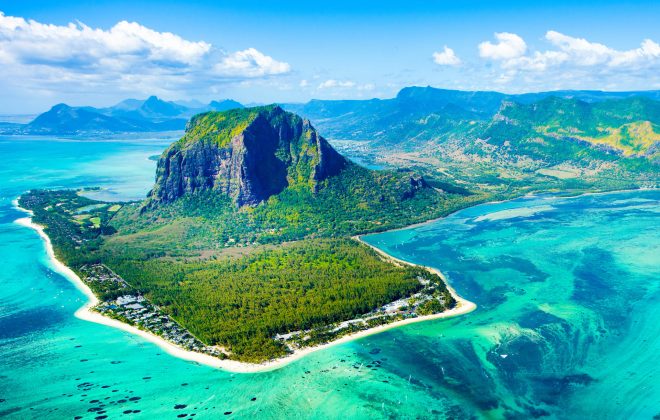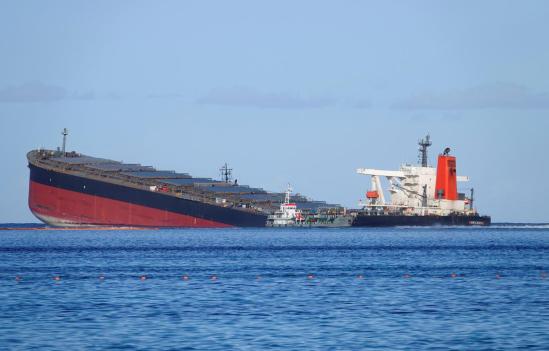By Rashi Jain-
On 5th August, a Japanese-owned ship ‘MV Wakashio’ split in two and leaked oil in an environmentally sensitive area off the east coast of Mauritius after the ship was grounded on a coral reef on 25th July. The ship has spilled about 1000-2000 tons of oil in the Indian Ocean. At the time of grounding the ship contained approximately 3894 tons of fuel oil, 207 tons of diesel, and 90 tons of lubricant oil on board.

The location of grounding and leaked oil is close to the marine park having two internationally protected wetland sites of international importance under the Ramsay Convention on Wetlands 1971. The oil spill has endangered corals, fishes, and other marine life and species. It has also resulted in very devastating consequences for the blue economy, food security, health, and tourism industry of Mauritius.
The government of Mauritius has activated its national oil spill contingency plan, arrested some crew members of the ship including the Captain. The captain, Sunil Kumar Nandeshwar, Indian national, is arrested on the charge of endangering the safe navigation of a vessel, which is an offense under Mauritian Maritime Laws. The government has also declared a state of environmental emergency and called for international help.
According to UNCTAD’s (United Nation Conference on Trade and Development) latest article regarding liability and compensation, It mentioned all the relevant legislation and law that would apply to Mauritius. It mentioned that liability and compensation would be granted based on two upfront situations: Economic and Environmental losses.
It also mentioned that the legislation (International Fund for Compensation for Oil Pollution Damage) that would have provided higher compensation ($286 million) to Mauritius would not be applied here because it provides compensation from “oil tanker pollution” and not from “bulk carrier.” The legislation that would cover bulk carrier is ‘International Convention on Civil Liability for Bunker Oil Pollution Damage’ will provide compensation for about $65.17 million.
International Maritime Organisation (IMO) and other UN entities like UNCTAD, OCHA, UNDP, UNOSAT as well as other countries including France and Japan are assisting Mauritius by providing financial assistance, mobilizing environmental and oil spill experts.
According to UNCTAD, “Oil carriage, but also other maritime transport (e.g. container ships, chemical carriers, general cargo ships and passenger ships/cruise vessels) poses important risks of ship-source oil pollution for coastal developing States and ‘ocean economies’ such as SIDS (Small Island Developing States) that rely heavily on fisheries, aquaculture and tourism. The unfolding situation in Mauritius offers an important opportunity for countries to re-evaluate whether they may need to consider acceding to the latest international legal instruments in the field. This includes legal instruments on liability and compensation for ship-source pollution – both oil pollution and other pollution. More generally, the international community may take the opportunity to consider further strengthening the existing legal framework, as appropriate, and provide technical assistance and capacity building to vulnerable developing nations. This also with a view to the importance of combating pollution for achievement of the 2030 Agenda on Sustainable Development, in particular Goal 14 on conserving and sustainably using the oceans, seas and marine resources for sustainable development.”

